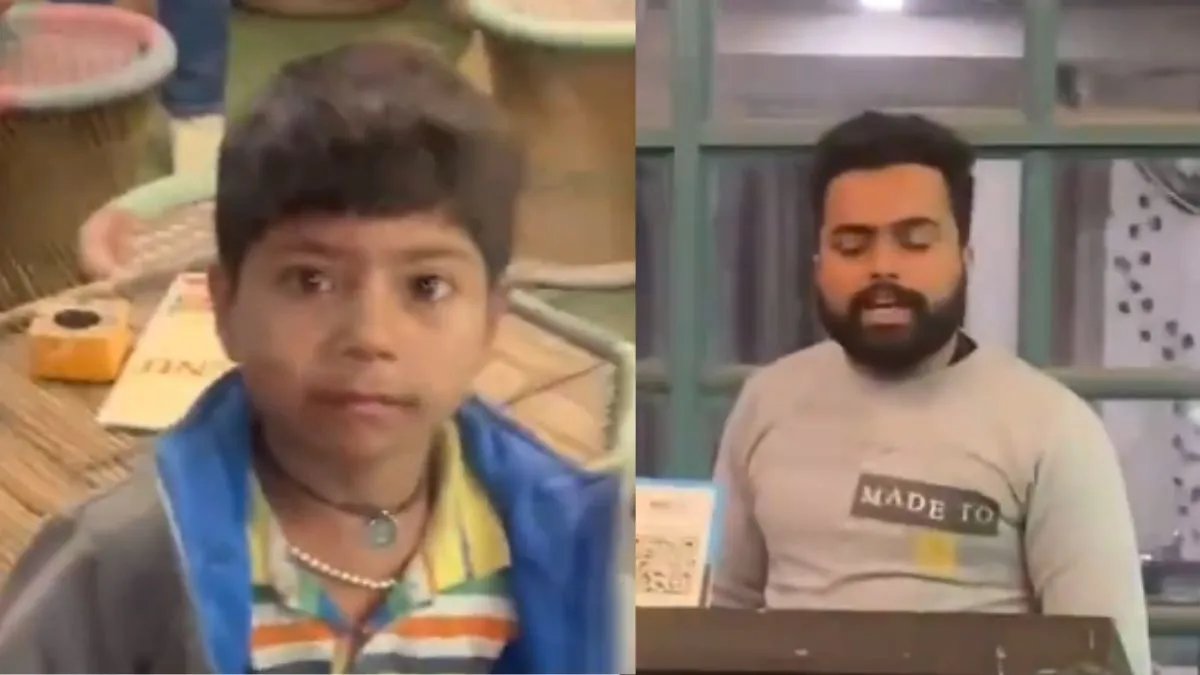- By Shailvee Tiwari
- Mon, 30 Dec 2024 03:45 PM (IST)
- Source:JND
Noida Viral Video: A recent viral video has caught the attention of social media users, highlighting an issue related to poverty. At a restaurant named Urban Tapri in Noida, a worker refused to serve food to a poor child simply because he was poor. The video, shared on the social media platform X (formerly Twitter) by the handle 'Ghar Ke Kalesh,' shows the child sitting inside the restaurant and wishing to eat Maggi. A woman recording the incident even offered to pay for the food, but the worker still refused, claiming that the Maggi was out of stock.
The video, shared two days ago, received a lot of reactions from users. Many criticised the worker's behaviour, while others called it deeply shameful.
Watch The Viral Video:
Kalesh b/w a Restaurant worker and a Lady (This Guy ain't letting a Poor Kid to eat food at his Restaurant, Even that lady was ready to pay for him) Urban Tapri, Sec-104 Noida UP pic.twitter.com/Cavm4JTOJ6
— Ghar Ke Kalesh (@gharkekalesh) December 28, 2024
Taking to the comment section, a user wrote, "Humanity should always come first. Kudos to the lady for standing up for the child." "That's sad when restaurants do this too and link it with shallow standards! And I guess the lady asked them earlier and only when they denied them then only she take out the camera after they denied Maggie for the kid, to expose their shallow standards! She was not spreading chaos by bringing many, she brought just one kid with her, so they can't give excuses for their policies, she was ready to pay too, what they did was misbehave with a customer!" added another user.
"The boy looks so cute and innocent, why they won't serve him, Maggie," a third user added. "Sad but we have become a bad nation. Most Indians are bad PPL. This is what it shows," a fourth user added.
According to a recent World Bank report, India has 129 million people living in extreme poverty in 2024, surviving on less than ₹180 a day. However, the number of extremely poor people in the country has dropped significantly, from 431 million in 1990 to 120 million in 2024.
ALSO READ: Terrifying Scene At Petrol Pump As People Warm Their Hands Around Bonfire; Internet Is Furious

